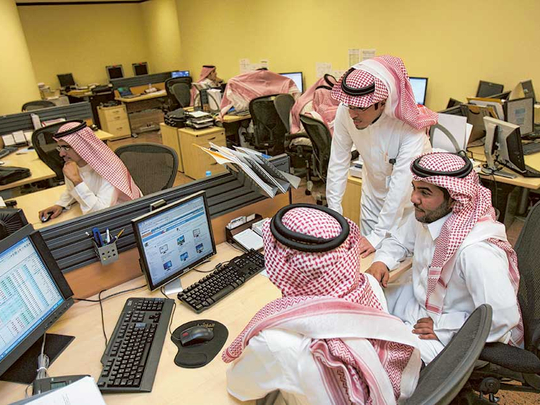
The GCC has been mulling over privatisation for almost 20 years now, but the implementation has been rather slow, inconsistent and mostly on a ‘needs-basis’. In the last few years, the privatisation activity across the Arab world came to a virtual halt as the anticipated reduction in state ownership after the Arab Spring failed to materialise due to civil unrest, largely driven by perception of corruption and insider dealings. However, given the dwindling oil prices (55 per cent decline in past 24 months) and burgeoning fiscal deficits, privatisation of state-assets is slowly rearing its head, at least in the long-term economic plans of less diversified countries such as Saudi Arabia, Bahrain, and Oman. On the other hand, privatisation initiatives in the UAE, Qatar and Kuwait, have been relatively muted due of their diversified financial positions. Over the past decade, the three countries have amassed significant financial assets relative to the size of their economies in reserves and investments, which continue to act as buffers against falling oil revenues.
As a result, Saudi Arabia recently launched ‘Vision 2030’, a package of economic and social policies designed to free the country from dependence on oil exports. The announcement by Saudi Deputy Crown Prince Mohammad bin Salman, on the possible 5 per cent privatisation of Aramco, estimated to be valued between USD 1.5-5 trillion, along with talks of the Saudi Stock Exchange (Tadawul) and Saudi Arabia’s Grain Silos and Flour Mills Organization considering IPOs, has definitely excited market participants. Additionally, the Saudi state-run hospitals are also planned to be placed in a holding company and put forward for an IPO, in a bid to transform the Ministry of Health (MoH) from a care provider to a regulator. Similarly, Bahrain is attempting to diversify its economy through the Supreme Privatization Council, and some of the country’s long standing privatisation candidates include Gulf Air and Bahrain Airport Company. Further, the Capital Market Authority of Muscat’s Securities Exchange had earlier presented a ‘golden share’ method, whereby state-owned companies are encouraged to provide stakes for public investing, while giving the government veto power. Other Omani government-owned companies have also been touted as candidates for possible privatisation, including the Oman Airports Management Company, Oman Air, Oman Oil Refiners and Petroleum Industries, and the postal service and power generation enterprises.
Given the close interdependence of public sector and government finances in the region, privatisation of state enterprises could help reduce fiscal deficits and enforce market competition. Privatisation of key sectors such as telecommunication, health care, airport operations, postal services, infrastructure and industrials, bodes well in the current economic circumstances due to its non-cyclical nature, while it might not be an ideal time to list the energy sector companies, especially in an era when oil prices are plummeting. Accordingly, Saudi Arabia’s decision to privatise Aramco, especially when valuations are likely to be well below what they would have been when oil topped USD 100 a barrel, raises questions of overvaluation amid investor anxiety. In all probability, the Kingdom would not offer a stake in the crude oil exploration and production operations of Aramco, but instead list the shares of its joint downstream subsidiaries at home and abroad, which is likely to deter investor sentiments. However, as of now, details on the process are scarce and expected within this year, but the ambition is pretty evident with JPMorgan and M. Klein & Co. being already raked in for advising on the flotation, including how to facilitate foreign investment.
Most importantly, privatisation is a complex process that requires careful conceptualisation and planning, especially in the case of Gulf monarchies, where transparency remains a critical factor for state-owned companies. Though the regional capital markets have opened up, there has not been significant demand from international investors, considering the scepticism of the quality of governance of privatised companies that are likely to remain under state control. On the other hand, if domestic institutional investors subscribe shares to the state-owned assets, this will effectively mean passing the money from one government pocket to another, as domestic institutional capital is also often sovereign.
In conclusion, the listing of several planned state-owned enterprises in the GCC is expected to unleash an era of unprecedented change in the local stock markets and the level of transparency and governance. However, the GCC governments would need to ensure that objectives of the new shareholders are aligned to that of the government and profitability and attractiveness for Gulf shares among foreign institutions are maintained. Additionally, a closer integration of GCC economies and coordination of policies should facilitate the restructuring and privatisation processes. The pathway will be challenging with several socioeconomic roadblocks including backlash from the conservative social structure of the nations, but if liberalisation and economic reforms can be successfully implemented over the next decade or so, the current oil price decline might as well turnout to be a blessing in disguise for the region.
The writer is founder and CEO, Al Masah Capital.






